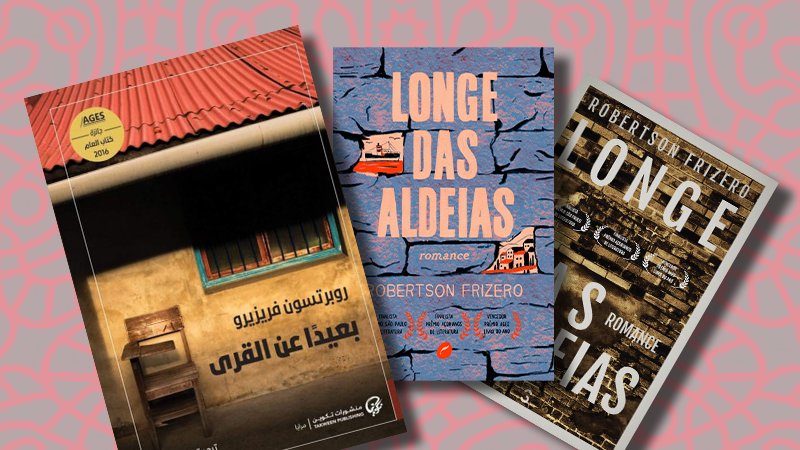São Paulo – Dublinense publishing house has closed a deal with two Arab companies to publish three Brazilian books by 2022. One of them is already circulating in Kuwait’s market. Longe das aldeias (Far from the villages) by Robertson Frizero was published in the Gulf country by Takweenkw publishing house. Pictured, covers of Longe das aldeias in Arabic and Portuguese.
Setenta (Seventy) by Henrique Schneider and Elas marchavam sob o sol (They marched under the sun) by Cristina Judar will reach the Egyptian market. The first will be hit the bookstores later this year, while the latter will be published next year by Cairo’s Sefsafa publishing house.
The publishing house has been in contact with Arab publishers for almost a decade, publisher Gustavo Faron said. “My first contact with Arab publishers was in the Frankfurt Fair, when we participated in a training program [for independent publishing houses], so we all stayed in the same hotel taking these courses – that’s when I made most of my contacts with the Arab world,” the Brazilian told ANBA on the phone.
One of the connections that Faraon made in Germany was with Lebanese Syrian publisher Samar Haddad. “She’s from the Atlas publishing house, and she was a consultant of the Doha International Book Fair in Qatar, where they had a program [that brought foreign publishers], and this led to an invitation to go to Doha in January 2020. There I met many publishers, including Kuwait’s publishing house,” he said.
He explains that the translation process from Portuguese to Arabic can demand more time than other languages that are more often translated into like English and French. “These contacts take time as the publishers must first order a critical reading [by someone that reads Portuguese] and trust this reading. The world is connected, but language is a barrier. Literature demands a level of comfort with the language, and we must rely on the translators since they are the ones responsible for actually reaching the readers,” Faraon said.
He believes that, despite the large number of speakers across the world, Portuguese is not an “export language” yet. “So, it’s a little surprising and really nice [to have books translated]. And this opens a small door. For example, Longe das aldeias was later sold to another language, Persian. The publisher in Iran saw the book in Arabic. This is very interesting as the books can circulate,” he pointed out.
In the case of the novel Elas marchavam sob o sol, a report on ANBA that was translated into Arabic served as a bridge to strengthen talks with the Egyptian publishing house. “I used the report in Arabic to instigate the published and resume talks,” Faraon said.
In addition to the three books whose publishing rights were sold, Dublinense is talking with a third publishing house on the publication another Brazilian book. According to Faraon, the books have different topics and reflect how diverse the Arab literary market is.
Translated by Guilherme Miranda




